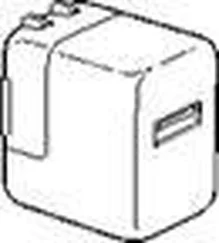1. These are the first sentences of his article ‘The macroeconomist as scientist and engineer’, Journal of Economic Perspectives , vol. 20, no. 4 (2006).
2 As it will become clearer throughout the book, however, economics can never be a science in the sense that physics or chemistry is. There are many different types of economic theory, each emphasizing different aspects of complex reality, making different moral and political value judgements and drawing different conclusions. Moreover, economic theories constantly fail to predict real-world developments even in areas on which they focus, not least because human beings have their own free will, unlike chemical molecules or physical objects. [2] 2. For a similar view, see the article, ‘Is economics a science?’ by Robert Shiller, one of the 2013 Nobel Economics laureates. The article can be downloaded at: http://www.theguardian.com/business/economics-blog/2013/nov/06/is-economics-a-science-robert-shiller. If there is no one right answer in economics, then we cannot leave it to the experts alone. This means that every responsible citizen needs to learn some economics. By this I don’t mean picking up a thick textbook and absorbing one particular economic point of view. What is needed is to learn economics in such a way that one becomes aware of different types of economic arguments and develops the critical faculty to judge which argument makes most sense in a given economic circumstance and in light of which moral values and political goals (note that I am not saying ‘which argument is correct’). This requires a book that discusses economics in a way that has not been tried, which I believe this book does.
2. For a similar view, see the article, ‘Is economics a science?’ by Robert Shiller, one of the 2013 Nobel Economics laureates. The article can be downloaded at: http://www.theguardian.com/business/economics-blog/2013/nov/06/is-economics-a-science-robert-shiller.
3 One difference is that I take my readers seriously. And I mean it. This book will not be a digested version of some complicated eternal truth. I introduce my readers to many different ways of analysing the economy in the belief that they are perfectly capable of judging between different approaches. I do not eschew discussing the most fundamental methodological issues in economics, such as whether it can be a science or what role moral values do (and should) play in economics. Whenever possible, I try to reveal the assumptions underlying different economic theories so that readers can make their own judgements about their realism and plausibility. I also tell my readers how numbers in economics are defined and put together, urging them not to take them as something as objective as, say, the weight of an elephant or the temperature of a pot of water. [3] But then scientists will tell you that even those numbers are not totally objective, if you asked them. In short, I try to explain to my reader how to think, rather than what to think. Engaging the reader at the deepest level of analysis, however, does not mean that the book is going to be difficult. There is nothing in this book that the reader cannot understand, as far as he or she has had a secondary education. All I ask of my readers is the curiosity to find out what is really going on and the patience to read through a few paragraphs at the same time. Another critical difference with other economics books is that my book contains a lot of information on the real world. And when I say ‘world’, I mean it. This book provides information on many different countries. This is not to say that all countries get equal attention. But, unlike most other books in economics, the information will not be confined to one or two countries or to one type of country (say, rich countries or poor countries). Much of the information provided will be numbers: how large the world economy is, how much of it is produced by the US or Brazil, what proportions of their outputs China or the Democratic Republic of Congo invest, how long people work in Greece or Germany. But this will be complemented by qualitative information on institutional arrangements, historical backgrounds, typical policy and the like. The hope is that at the end of this book the reader can say that he or she has some feel about the way in which the economy actually works in the real world. ‘And now for something completely different . . .’ [4] As they used to say on Monty Python’s Flying Circus .
But then scientists will tell you that even those numbers are not totally objective, if you asked them.
4 ‘And now for something completely different . . .’ [4] As they used to say on Monty Python’s Flying Circus .
As they used to say on Monty Python’s Flying Circus .
This is known as a case of physics envy.
Incidentally, this should make economists’ jobs really easy, because we already know the answer to that Ultimate Question: it is 42. But let’s leave that subject aside for the moment.
The Nobel Prize in Economics is not a real Nobel prize. Unlike the original Nobel Prizes (Physics, Chemistry, Physiology, Medicine, Literature and Peace), established by the Swedish industrialist Alfred Nobel at the end of the nineteenth century, the economics prize was established by the Swedish central bank (Sveriges Riksbank) in 1968 and is thus officially called the Sveriges Riksbank Prize in Economic Sciences in Memory of Alfred Nobel.
. R. Lucas, ‘Macroeconomic priorities’, American Economic Review , vol. 93, no. 1 (2003). This was his presidential address to the American Economic Association
But then this would not have surprised the late John Kenneth Galbraith (1908–2006), who once deadpanned that ‘the only function of economic forecasting is to make astrology respectable’.
This is brilliantly explained by Felix Martin in his book Money: The Unauthorised Biography (London: The Bodley Head, 2013).
Many of these services also involve consumption of material things as well – for example, the food in a restaurant – but we are also purchasing the cooking and the serving services.
Before Smith, there were other economists, like the economic thinkers of Renaissance Italy, the Physiocrats of France, and the ‘mercantilists’, some of whom I discuss in Chapter 4.
Babbage’s first computer was called the difference engine, which provided the title for one of the classic ‘steam punk’ sci-finovels by William Gibson and Bruce Sterling.
Clifford Pratten, ‘The manufacture of pins’, Journal of Economic Literature , vol. 18 (March 1980), p. 94. Pratten says that the figure was for the more efficient of the two manufacturers then in existence. The less efficient one produced around 480,000 pins per worker per day.
In economics theory, this is known as finance capital or money capital.
A small number of companies engaged in risky ventures of national significance, such as colonial expansion (the East India Companies of Britain and of the Netherlands) or large-scale banking, were allowed to be based on limited liabilities.
Franchises are independent companies using a bigger company’s brand and supplies, rather than branches operated directly by the bigger company.
Читать дальше












